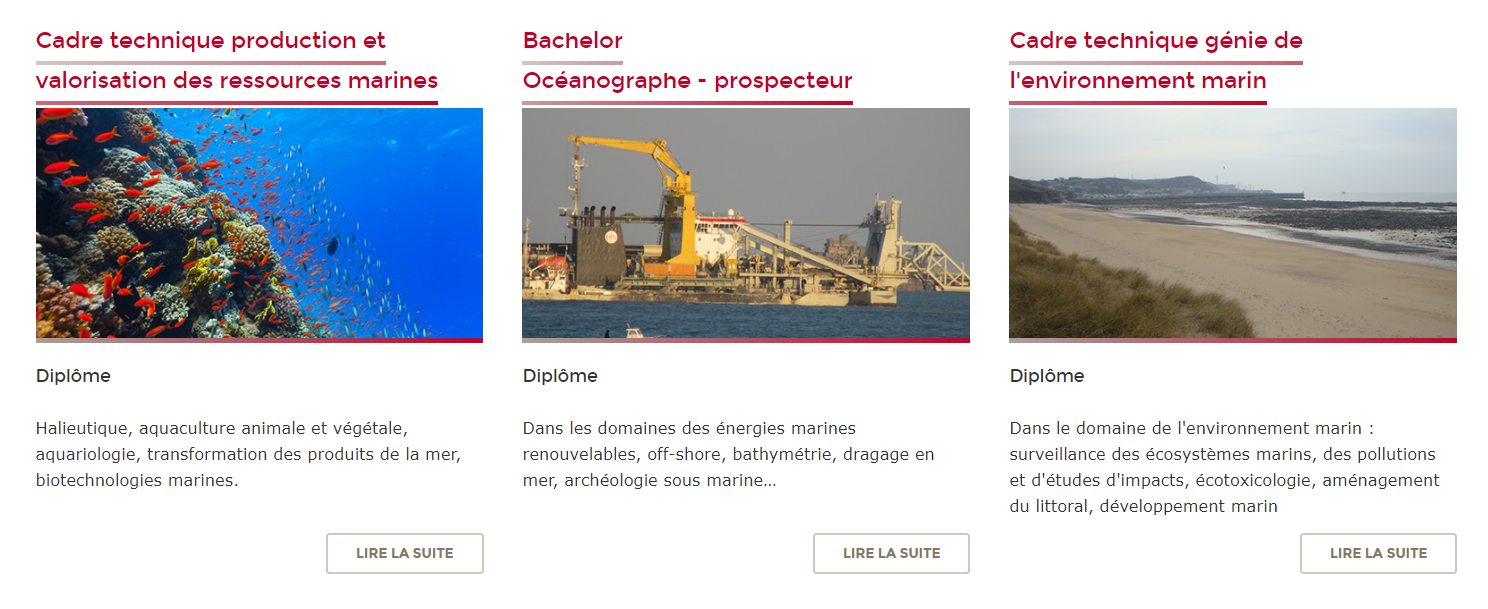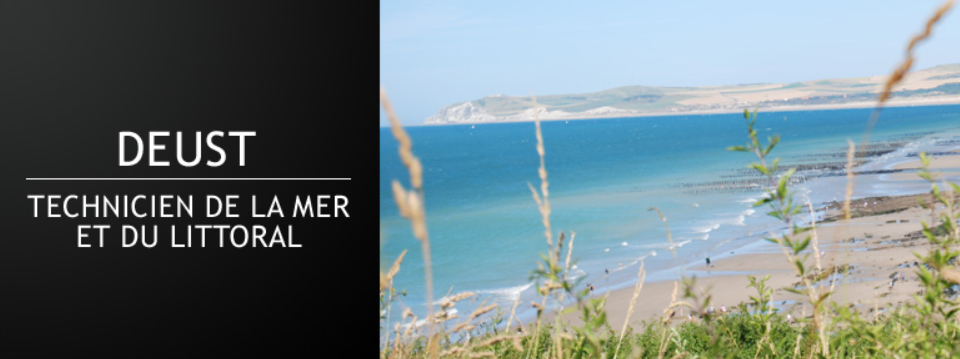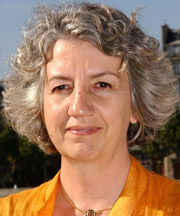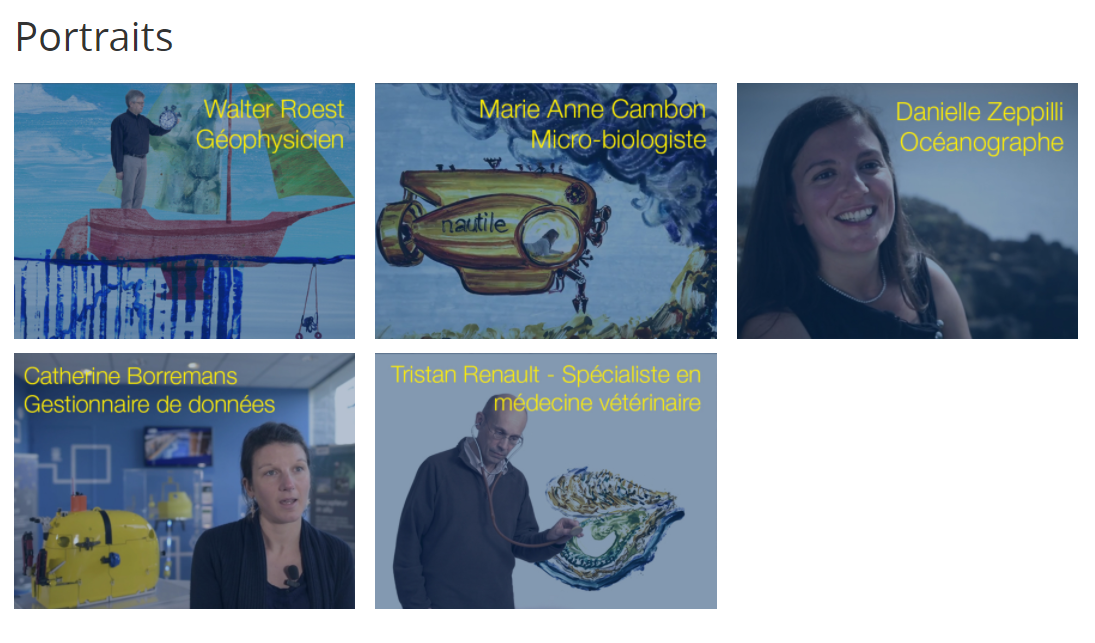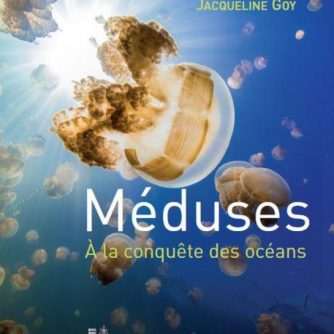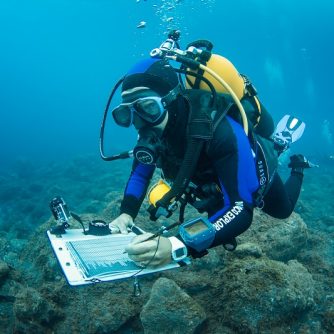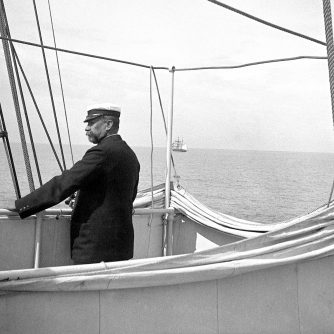Becoming an oceanographer
- Home
- Becoming an oceanographer
#SeaTrade #Oceanographer
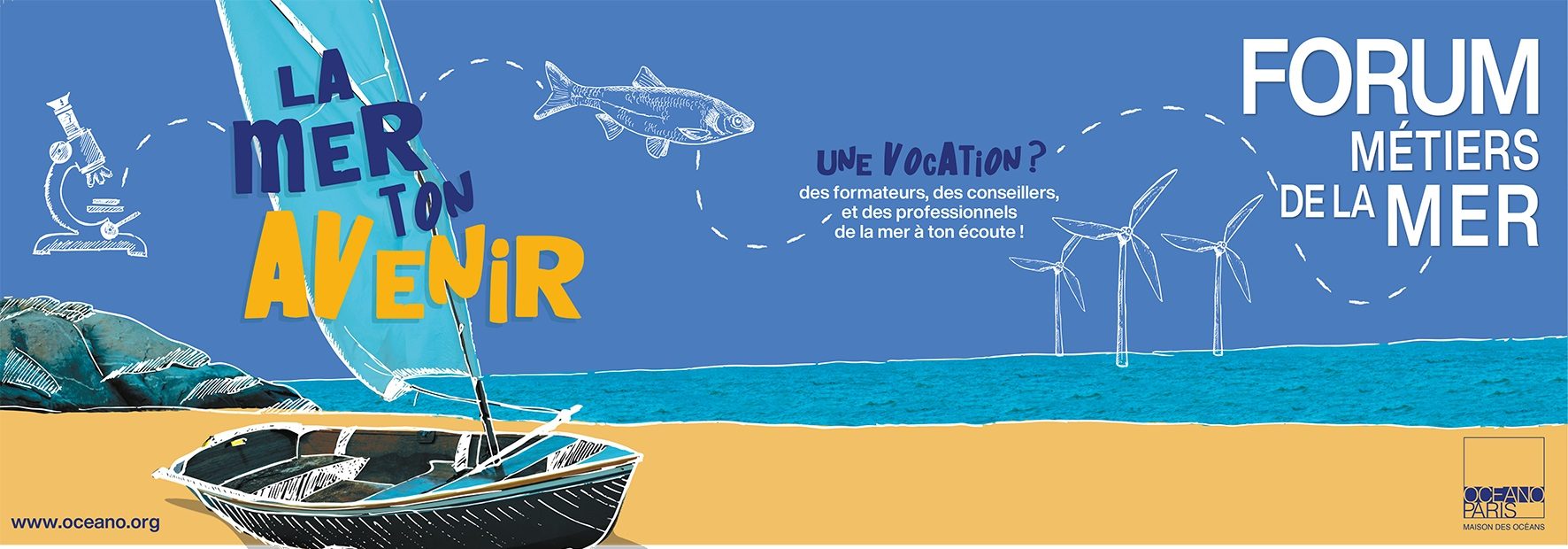
Claire, oceanographer-engineer
My tasks and activities
“I am an engineer at the Institute of Marine Research, Department of Oceanography and Climate, in Tromsø, Norway. I run the Ocean Acidification laboratory. With my team, our main mission is to monitor ocean acidification. We carry out numerous analyses such as DIC (Disolved Inorganic Carbon), water alkalinity, hydrogen potential (pH), dissolved oxygen (Winkler’s method)… I am also in charge of deploying the instrumentation equipment before the oceanographic vessels embark, in particular sensors measuring pCO2, a technique used, for example, for mooring. In parallel, I participate in workshops to test and exchange on the performance of different instruments and sensors used. I will soon be attending the ICOS-OTC pCO2 inter-comparison conference in Belgium in 2021.
I am also involved in a training project that I really enjoy: “Tropical Nansen Legacy”. The objective is to train in good sampling and analysis practices in developing countries. Thanks to this project, I was able to travel to Senegal, Mauritania, South Africa and next year I will participate in campaigns in the Indian Ocean. Another part of my job is to support the lab manager on the safety conditions of the laboratories and the good management of chemicals. To conclude, throughout the year, I work mainly in the laboratory, I take part in a few 3-month sea campaigns per year. I like the possibility of working on very different projects. It is a very rewarding job.”
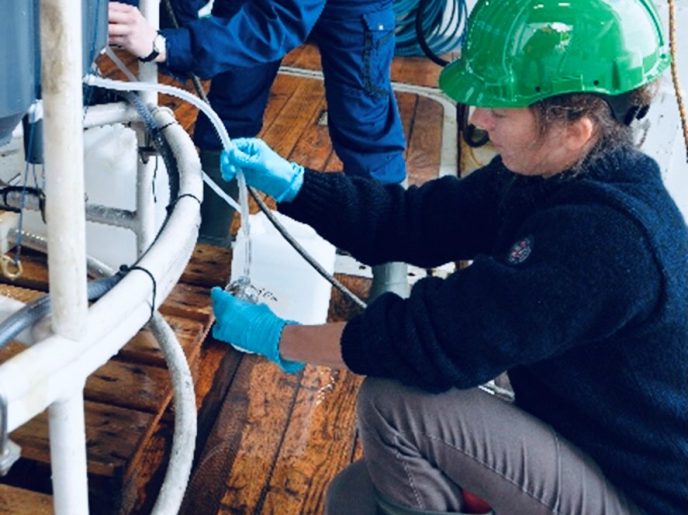
Training
- Master of Science in Oceanography with specialization in Marine Biogeochemistry (M.Sc), ISMER UQAR, Rimouski, Québec, Canada.
- Bachelor of Science in Earth and Environmental sciences (B.Sc.), EPOC, Bordeaux University, Talence, France.
- Bachelor of Science in Oceanography with specialization in Environmental Science (B.Sc.), INTECHMER, CNAM, Cherbourg, France.
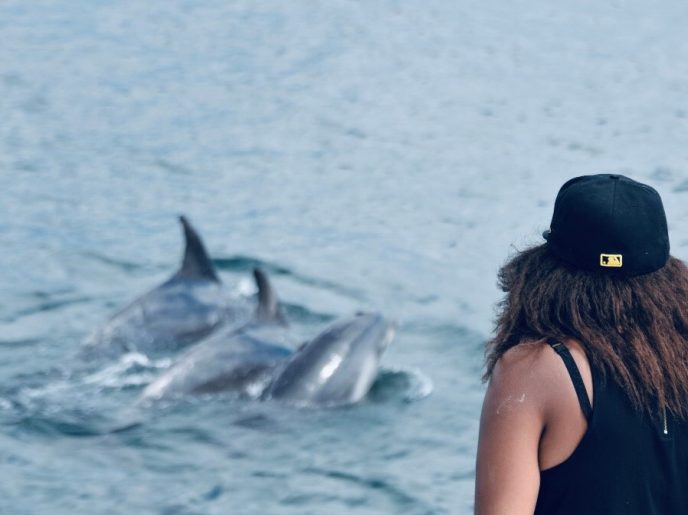
Justine, marine mammal observer
My tasks and activities
“My work consists on the one hand of visually observing and photo-identifying the presence of marine mammals and protected species in a specific area during the seismic activity of the ships. On the other hand, to identify the interested species and to study their behavior, distribution and environment.”
Training
- Licence Biology (life sciences)
- Master BEE (Biodiversity, Ecology, Evolution)
- MMO (Marine Mammals Observer) certification training
Johan, paleoclimatologist and paleoceanographer, teacher-researcher
My tasks and activities
“My work consists of studying marine and lake sedimentary archives, from the bottom of oceans or lakes, in order to better understand past climate variations and to better predict future ones.
I am mainly interested in the behaviour of certain molecules, such as lipids, produced by phytoplanktonic organisms or plants.
The study of these molecules, which I find fossilized in the sediments, allows me to reconstruct over time the changes in temperature, precipitation or even ice cover in several regions of the world.”
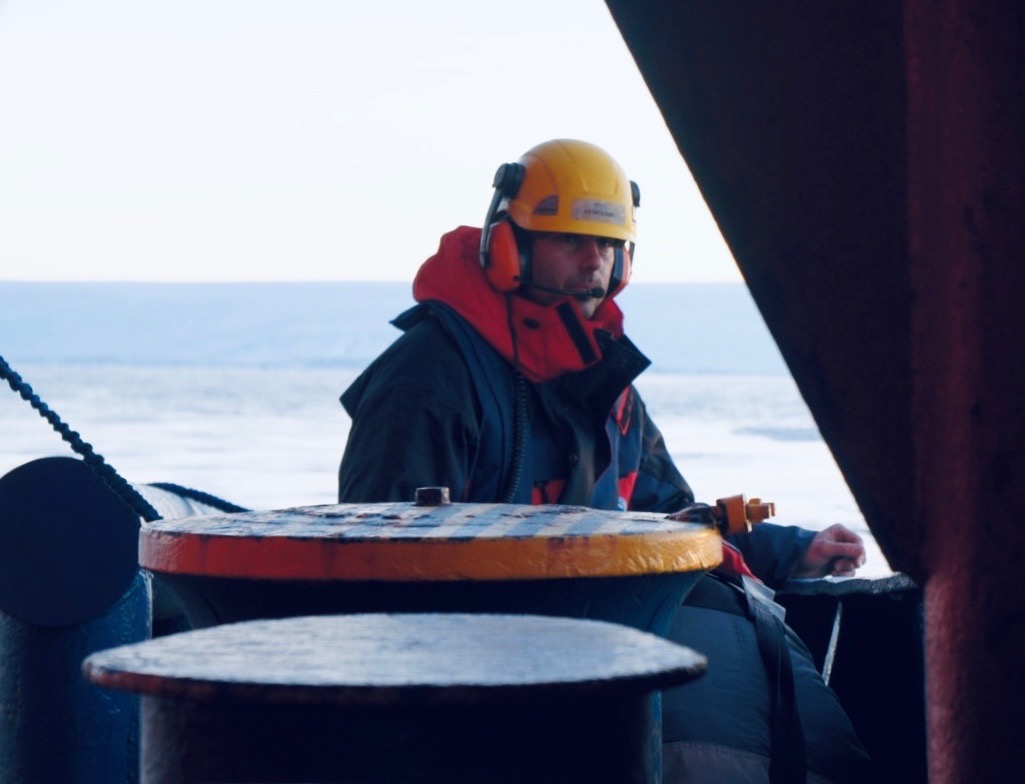
Training
- DEA (Diplôme d’études approfondies) Environnement Océanique Littoral et Hauturier, University of Bordeaux – now equivalent to Master 2 Sciences de la mer
- Master’s degree in Environmental Sciences, oceanography option, University of Bordeaux – now equivalent to Master 1 in Marine Sciences
- Licence des Sciences de la Terre et de l’Univers, Université du Québec à Montréal (UQAM) – now equivalent to Licence 3 Géosciences et Environnement
- DEUG of Earth and Universe Sciences – equivalent today to Licence 1 and 2 Geosciences and Environment
How to become an oceanographer?
Oceanography or oceanology?
Oceanography concerns the knowledge and theoretical understanding of processes and phenomena and brings together several disciplines: biology, physics, chemistry, geology…
Oceanology groups together all human activities related to oceanography: prospecting, exploitation, resource management…it is rather the application of theoretical knowledge to economic and social realities.
An oceanographer spends little time at sea on scientific missions. His work consists of conducting experiments in the laboratory, processing data in front of his computer, and sharing these results by publishing and participating in conferences.
Often researchers from different disciplines come together to work on a common research program. Each person conducts experiments in his or her own area of expertise and the results are then interpreted together, as the phenomena and processes often interact with each other.
Required qualities: be a specialist, while knowing well the generalities of oceanography; be highly motivated; have a taste for research; ability to work in a team; English required.
Possible short courses
After the baccalaureate, independently of the aquaculture baccalaureate +2, there are currently two short courses in France for technicians specialising in oceanography.
INTECHMER
(Cherbourg)
University Littoral Côte d'Opale (Boulogne/Calais)
Choose the university...
Start with a Bachelor’s degree (bac+3) in science (either material sciences, mathematics and physics to do physical oceanography, or natural and life sciences to do biological oceanography).
It is generally only after the master’s degree (bac+4) that specialization in oceanography, physics, chemistry-physics or biology of populations and ecosystems or environmental sciences begins.) Finish with a doctorate that will give you the title of Doctor of Science in your specialty.
The Marine Universities network presents teaching and research in the fields of the sea and the coastline and in multidisciplinary fields offers a catalogue of masters in oceanography in various disciplines.
... or opt for engineering degrees!
Another possible route for marine biology is to obtain a degree in agricultural engineering. Some schools, such as Agrocampus Ouest, have a Marine Sciences course.
While SeaTech – University of Toulon’s engineering school offers training in marine engineering.
Many so-called general engineering degrees have a specialization in the 5th year that can lead to a profession related to the sea (remote sensing, electronics, physics, chemistry, water or environmental engineering, agronomy or veterinary).
Management of environmental sciences or transversal professions
Documentary filmmaker, librarian, journalist… many jobs can be grafted onto the specific jobs in the world of the sea. Research organizations and other institutions are recruiting HRDs, communications managers, graphic designers, IT specialists, etc.
Skema Business School offers a degree in Environmental and Marine Science Management.







